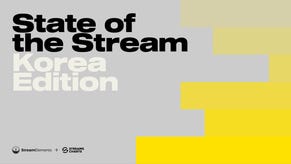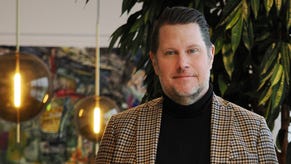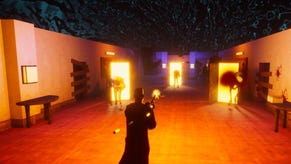Food, firing, and freedom
GDC 2013: Other Ocean, 17-bit, and Capy Games give tips for creating positive studio cultures without breaking the bank
Not every studio can afford to lavish their employees with catered meals, crunch-time massages, or extravagent team retreats. But that doesn't mean a positive, enjoyable studio culture is unattainable for indies. In a panel discussion at the Game Developers Conference today, Capybara Games president Nathan Vella, 17-bit artistic and creative director Jake Kazdall, and Other Ocean CCO Mike Mika offered advice on how to keep morale up on a shoestring budget.
Mika started things off with arguably the most important aspect of the problem: Food.
"People don't like to go out and get their food. They want their food," Mika said bluntly.
But without a big budget to bring in food, Mika said the team would instead resort to BBQ parties every Friday. Those are more fun than ordering in pizza, he said, and can be done on the cheap. Kazdall echoed the sentiment, saying his team makes weekly CostCo runs to stock up on sodas, sandwich components, and other bulk food purchases.
Vella took a different tack, saying Capybara doesn't have any love for the junk food staples of many studios. Capybara outlawed soda and "terrible" food. They encourage the developers to go to better restaurants in the neighborhood, or make their own lunch and bring it in.
Beyond food, Vella said he goes out of his way to create a culture that allows people to live their lives how they want to live them. Capybara works around its employees' unique situations; parents may work from home for several days of the week to watch kids, while insomniacs can adjust their working hours when they need to. The studio also encourages people to take their vacation at any time, so long as it's not within a month of their project shipping. Beyond that, Vella said it's key to make sure everyone in the studio has ownership over some part of their job, whether they're building the studio's next big game or working on a port of something that's already been out.
"When we talk about culture, especially in smaller studios, it has so much to do with giving people ownership over their tasks, their time, and that ability to feel f****** rad about creating stuff," Vella said.
As someone who started a video game studio out of his own passion for making games, Vella said it seemed hypocritical to not give employees the freedom to explore their own passion for the same thing.
Kazdall said he tries his best to let his developers pursue whatever they happen to be interested in. Mike echoed the sentiment, saying that it's his job to get out of the way when one of his team shows passion for something that's being worked on.
"Passion is more important to culture than experience at this point," Mika said, adding that it's important not to bring people who are too jaded into the mix, as it can have a detrimental impact on younger, more enthusiastic developers. Vella agreed with that, saying that learning to quickly get rid of the people who don't fit into the company culture has been the most brutal, difficult lesson Capybara has learned over the years.
"If somebody's really poisonous, if somebody's really upset all the time, you can't do s***," Vella said. "We wasted years trying to turn people from the dark side to the light side."
Mika said a negative element like that can put the entire studio's progression on pause. Kazdall agreed, and said 17-bit has taken a more gradual approach to hiring, easing people into the studio here and there before committing to anything long term.
All three developers stressed the importance of managing burnout. Mika said his biggest challenge is monitoring his team to identify when people are doing too much and in danger of burning out. Vella said it's a case-by-case and week-by-week basis, where someone having a particularly bad stretch may need to be sent home before 40 hours. On the other hand, if a developer is "in the zone" and fighting to work more, Vella said he'll let them put in the extra hours if he thinks they're still productive.









